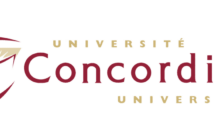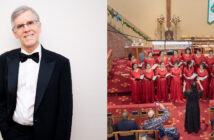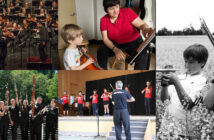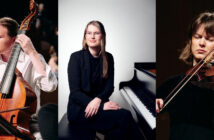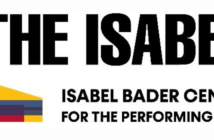
This page is also available in / Cette page est également disponible en:
![]() Francais (French)
Francais (French)
Tenor Marc Hervieux did not expect to be offered the position of director general of the Conservatoire de musique et d’art dramatique du Québec, given his multiple commitments and his schedule as an opera artist, actor and radio host.
“It was a big surprise!” he says. “My reflection was quite long. It wasn’t a simple decision to make; I had to weigh the pros and cons. But deep down, I wanted to take up this great and beautiful challenge.
He has no intention of putting his career—as an opera artist and radio host on Radio-Canada’s “Quand ça vous chante,” where he discusses the art of opera “with passion” and gives pride of place to francophone opera artists from Quebec and Canada—on hold. On the contrary, he has always believed that a general director of the Conservatory must have an active career in order to have an accurate understanding of the realities of the field, and the artistic milieu. “When I was asked to assume this great responsibility, I said to myself: It will be quite a headache to reconcile this new administrative role with my multiple professional artistic commitments.”
Chronic Administrative Instability
Hervieux acknowledges the issue of administrative instability, and the sometimes tense relationship between the board of directors and the general management at the conservatory, which has been widely reported on in the media in recent years. “The proof of this is that I am the eighth executive director in 10 years.” He notes that the search for a new director general had been underway for a very long time, and points out that he has the advantage of having been trained at the Conservatory, and of having kept in close contact with the institution, its teachers and the students in his class, as well as having participated in various performances—benefit events, concerts, etc.
He is thus returning to the fold with a good knowledge of the situation at hand. “I know the good, and the not-so-good sides of the Conservatory, and I want to take the institution even farther than it has gone since its founding by Wilfrid Pelletier in 1942,” Hervieux says. This great communicator speaks of the need to publicize the undeniable achievements of the Conservatory over the past 90 years, and the impressive accolades of its many cohorts of musicians and actors. “The prestige of the Conservatoire speaks volumes about the quality of the teachers and administrators who have succeeded one another in this mecca of artistic education in Quebec,” he says.
Since his first meeting with the members of the Board of Directors, the day after his appointment by the Council of Ministers on June 1, he has only experienced a healthy relationship between his own general management and the Board. He has been pleased with the “warm welcome” he was extended, and it gives him the motivation to launch the first projects in his new role. “I am very eager to continue with our mission, establish a solid foundation so as to ensure the school’s continuity, and restore its pride and prestige.”
Among his priorities, Hervieux highlights the goal of establishing a solid funding system to ensure the Conservatory’s future. “This is a core part of our mandate, as a government institution, offering schooling to young people with minimal fees. We must continue upholding our fundamental mission of training exceptional musicians from all walks of life, regardless of their social status, so that everyone has access to this prestigious training based solely on their talent and determination to become a musician or dramatic actor.”
Circles of Honour and Influence
Hervieux’s arrival at the helm of the Conservatory coincides with the preparation of a new strategic plan that will benefit from consultations with the members of the newly created Circle of Honour and Outreach, launched on June 14 by the Board of Directors and consisting of 10 prominent figures in the cultural and performing arts community, both in music and in drama: Alexandre Da Costa, Marie-Thérèse Fortin, Ève Landry, Marie-Nicole Lemieux, Robert Lepage, Marie-Josée Lord, Yannick Nézet-Séguin, Catherine Perrin, Lorraine Pintal and Jeff Stinco. “Nominated for their inspiring artistic careers and their great commitments to the Conservatory and its mission, these artists will be called upon to offer their advice and support to the Conservatory, to help it affirm its prominence in teaching the performing arts,” the Board of Directors indicated on that occasion.
For Hervieux, the experience and competence of the existing team, combined with the expertise of these accomplished artists will be invaluable to the student community. “This collaboration will be a source of inspiration, and will bring with it a wealth of knowledge and renewed vitality which will benefit all our students,” says Hervieux, who has no fears about the future of opera teaching in Quebec, “an exceptional breeding ground for high-calibre singers.” The last Montreal International Music Competition is an eloquent example. Of the 32 finalists chosen, there were 13 Canadian talents. “Impressive! Maybe it’s one of the advantages of our northern climate that we have such powerful voices,” he says.
Translation by Eva Stone-Barney
This page is also available in / Cette page est également disponible en:
![]() Francais (French)
Francais (French)






